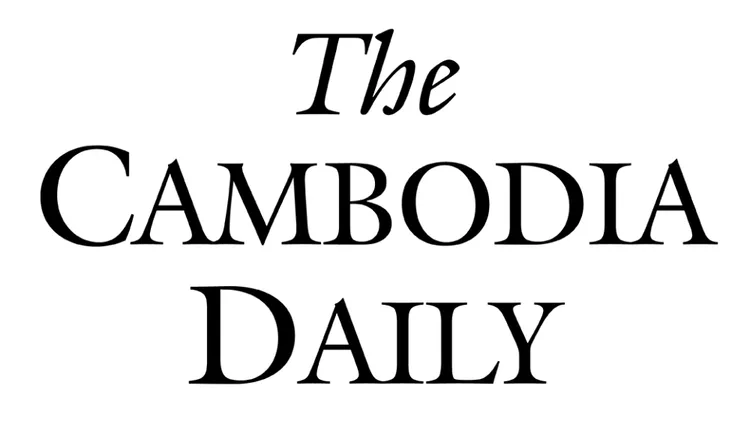Bloggers open a digital window on Cambodia
By Emily Lodish
The Cambodia Daily
Tuesday, September 4, 2007
Whether it’s better to blog in English or Khmer was up for debate at last week’s first-ever Cambodian Bloggers Summit, but 17-year-old Keo Kalyan saw no reason to pick sides.
On her predominantly English-language blog–deedeedoll.blogspot.com–which began in 2005, Keo Kalyan plays around with some English translations of Khmer words, or “Khmerlish.”
An August post told about how her fellow students were flocking to the photocopy shop the night before final exams to copy answer sheets.
“I am also a grade 12 student too! But I didn’t go down to copy any document na! Hehe…” she wrote, mentioning the word “na,” which is sometimes used to add emphasis in Khmer.
Blogging in Khmer has become an increasingly viable option thanks to greater access to Unicode-which allows for Khmer script to be encoded, or recorded, onto computers–and some see it as a source of national pride.
But for many young Cambodians looking toward the future and jockeying for position on the international stage, blogging primarily in English makes the most sense.
On the sidelines of the two day summit, held Thursday and Friday at Pannasastra University and organized by five Cambodian bloggers with funding from NGOs International Republican Institute and Open Institute, Keo Kalyan talked about her blog as a way to practice her English and blend her everyday life with that of her peers across the globe.
“It helps me fit into the international community,” she said of her blog. ‘I can adapt myself when I meet international friends.”
“Khmer may be good for more in depth descriptions instead of just a few [English] sentences,” said Tharum Bun, 25, author of tharum.info, which arguably became the first Cambodian blog in 2004. But he said he’s in no rush to blog in Khmer. “It’s just English for now.”
Despite trailing behind its neighbors in terms of how many people use the Internet, Cambodia is on par with Vietnam and Thailand for how many of those people create blogs-or Web sites made up of frequent, journal-style entries-in English, according to Preetam Rai, Southeast Asia regional editor for Web site Global Voices.
The International Telecommunication Union and the Vietnam Internet Center report that around 44,000 people use the Internet in Cambodia, compared to 8.4 million in Thailand and 16.5 million in Vietnam, Rai said Friday at the summit.
Rai, who has been tracking Cambodian blogs for the last two years from his base in Singapore, said he thinks English comes easily to the critical mass of Cambodians who are a result of the post-war baby boom.
”It’s a young country. Unlike older populations, the young are keen to learn and share,” he said.
The five volunteers who spearheaded the summit have held 14 workshops at universities around the country, training some 1,700 students in the techniques of blogging, said event organizer Mean Lux, 28.
Participants at the summit estimated that there are between 200 and 300 Cambodian bloggers out there, the vast majority of whom are under the age of 3O-just like most Cambodians.
According to the World Bank, 70 percent of Cambodia’s population is under 30 years of age, and it is this sizable chunk of people who are figuring out how they want to present themselves to the world.
US national John Weeks, a long-time expatriate blogger who spoke at the summit on how to ensure blog content quality, said that starting a blog involves asking yourself that very question.
“It’s the search for identity played out in public,” he said, adding that the impact of blogging is understandably mitigated by its concentration among the urban middle class.
“Even though this has an effect on media, you don’t see farmers blogging about their rice harvest,” he said
But for those plugged in and online, like the young Siem Reap man currently studying in Singapore who refers to himself as Vireak on his blog vireak.net, identity sifting is everyday blog fodder.
In a post from September 2006, he details how his heart sank “like the Titanic” when the receptionist at a dental clinic called him ”poo” or “uncle” instead of ”bong” or “older brother,” indicating that he was not to be considered a romantic prospect.
“So ladies, please tell us the reasons why most of you call us ‘poo’ when apparently we’re not that old enough to be uncles?” he asked, before reminding readers of the popular Khmer saying: “At first ‘uncle,’ soon ‘brother/senior,’ three years later ‘honey.”‘
Despite the precedent set by retired King Norodom Sihanouk, who has recently been using his personal Web site as a forum to discuss his experiences with the Khmer Rouge, blogger Phatry Pan, 27, said most Cambodian bloggers steer clear of politically sensitive subject matter.
“Most of the blogs are very [politically correct]. They’re not going to push buttons,” he said, adding that now could be the time to begin introducing more controversial subject matter into the blogosphere.
Sopheap Chak, 22, couldn’t agree more. She started her blog, sopheapfocus.blogspot.com, in May and recently posted that she will soon write in both Khmer and English.
An advocacy officer for the Cambodian Center for Human Rights, Sopheap Chak covers timely and sensitive issues on her blog ranging from gender inequality to the decline of monks’ morality.
“There is a law for freedom of expression, but people are afraid…. Even the younger generation seem traumatized,” she said. ”For me, it is not a matter of afraid. It is my right.”
Tharum Bun said he sees his blog, which focuses on technology and development issues, as another kind of corrective lens.
“Most people know only a few things about Cambodia,” he said. ‘They know about Khmer Rouge and Pol Pot”.
Tharum Bun, whose Saturday post was a musing on the arrival of KFC to Phnom Penh, said he hopes through blogs to lend “perspective to represent what Cambodia is really about.”
